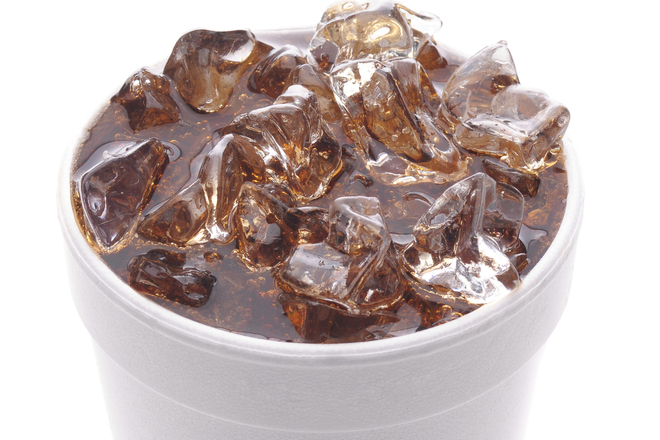Say what you will about New York City’s despotic mayor-for-life Michael Bloomberg, he’s a straight shooter. With a public hearing on his contentious proposal to ban the sale of super-sized beverages looming later this month — and movie theaters, soda brands and thirsty consumers alike all coming out swinging – Hizzoner shrugged Monday that “If you want to kill yourself, I guess you have a right to do it.”
And you do. The proposed giant-size drink ban has already made for late-night punch lines, angry theater chains urging consumers to “Say no to the ban,” a movement to “TAKE A STAND,” and enough public fury to spur a “Million Gulp March.” And it’s not as if New York doesn’t have other pressing issues to deal with, like crime and poverty and people pooping in the pools.
But silly as the ban might seem, it’s a pretty great idea. Nobody’s forcing anybody to drink less Sprite. Bloomberg’s proposal would simply prohibit the sale of “any cup or bottle of sweetened drink larger than 16 fluid ounces.” It doesn’t mean you wouldn’t be able to buy a Herculean-size unsweetened drink, like milk or fruit juice. Or carry around your own. Or you could just freaking buy two Gatorades if that’s what floats your boat.
As we face an obesity crisis that affects one-third of all Americans – and, like rates of heart disease, diabetes and stroke, that number just keeps rising – portions get bigger and bigger. You can currently go into most any movie theater and buy a 44-ounce Mountain Dew to take you though the entirety of “Magic Mike.” That’s about 624 calories and 167 grams of sugar. Your recommended daily max of sugar is 20 grams. And here’s something to bear in mind – while those first few sips of the Dew might seem like the nectar of the gods, returns start to diminish rapidly after that. As a recent New York Times story noted, “Our tongues and our minds quickly get used to repeated pleasures, and so the 39th sip is not as delightful as the first.” In the meantime, New York healthcare facilities are currently upgrading equipment to accommodate patients who weigh upward of 500 pounds. As Bloomberg said Monday, “In New York City alone we’re going to spend $4 billion of your money to treat obesity-related diseases.”
Limiting the size of drinks won’t solve our obesity problem. It’s not a magical cure for a deeply rooted and culture-wide dysfunctional relationship with health and eating. But a size limit does put a measure of consideration into consumption. Think of it this way – if you went to a normal restaurant that doesn’t load its portions onto manhole covers, you’d probably pause for a moment before deciding to order that second dinner. If you’re getting double your recommended daily caloric intake on a single plate, however, you’ll probably overeat.
The proposal scales back our seriously out-of-whack sense of what constitutes a portion – a skewed vision that benefits theater chains (which charge exorbitant markups for concessions) and junk food manufacturers. You know the regular-size portion of McDonald’s fries? A generation ago that was the large. Coca Cola originally came in 6.5-ounce bottles. We’ve been changing what constitutes a single serving for years — it’s simply crept upward for so many years that the notion of a 16-ounce beverage now sounds like an affront to our civil liberties. And while it’s easy to boo-hoo that our Founding Fathers fought expressly for our freedom to slake ourselves on Red Bulls the size of actual bulls, the truth is that if you’re that thirsty, you could get two 16-ounce drinks that would taste exactly the same as a single 32-ounce one. I’ve done the math! You’ll still, in the words of the mayor, have a right to kill yourself. But it’d be a victory that couldn’t possibly be less sweet.


